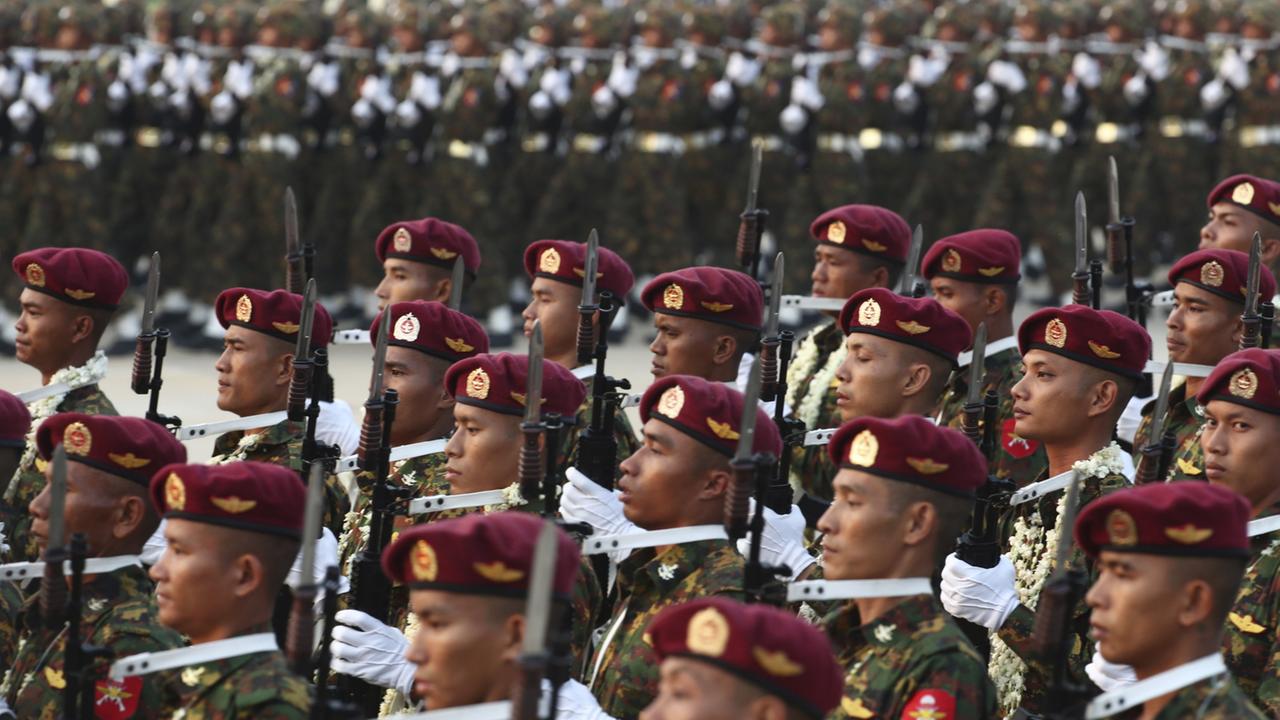background
Myanmar's junta has introduced compulsory military service. It is a move that shows their weakness in the face of the rebels' successes. Thousands of young men and women are fleeing – or joining the resistance.
The queue in front of the Thai embassy in Myanmar's largest city Yangon is several hundred meters long. Since the military regime announced last week that it would introduce compulsory military service, thousands of young people have wanted to leave Myanmar.
Due to the massive rush, the Thai embassy has announced that it will not accept more than 400 applications per day. There are also large gatherings of people in front of passport offices. In the city of Mandalay in the center of the country, two women died after a stampede. In some cases, people line up at midnight so that they can receive the forms for their departure the next day.
Thousands of people in Myanmar are trying to leave the country for Thailand to avoid conscription. Either legally with a visa – or illegally through the jungle.
Fight against your own people
The military junta ruling Myanmar announced last week that it would conscript young people into compulsory military service. Junta spokesman Zaw Min Tun said the situation in the country required this.
From April, all men aged 18 to 35 and all women aged 18 to 27 will be required to complete military service for at least two years. Specialists such as doctors and engineers should even be drafted up to the age of 45 and for up to three years.
The junta spokesman specified that the plan is to recruit around 70,000 people, the first 5,000 in April. The law provides for prison sentences of several years for refusal. There are reports that soldiers in various regions have already started picking up young men from their homes at night. Compulsory military service was decided by the then ruling military council in 2010, but was never implemented.
Conscription shows the weakness of the military
Myanmar's military leadership is fighting armed rebel groups across the country. “Conscription is a sign of desperation,” says Thitinan Pongsudhirak, a Myanmar expert at Chulalongkorn University in Bangkok ARD-Interview. “The war cannot be won by Myanmar's military regime. And conscription is counterproductive: they now have the right to recruit, but the country's youth, men and women, are running away from them.”
Three years after the coup in which the military deposed the newly re-elected government of Nobel Peace Prize winner Aung San Suu Kyi, the situation is more tense than ever. Guerrilla armies are attacking the military in several areas. The resistance fighters were able to conquer several cities, especially near the borders with China, India and Bangladesh.
The Tatmadaw, as the military is called in Myanmar, has lost many soldiers. The alliance between three rebel groups now seems noticeably weakened and pushed into a corner. The regime now apparently sees compulsory recruitment as the only solution to strengthening the force.
Observers say that the junta needs to mobilize the last of its forces through compulsory military service. But the call-up not only shows the army's personnel weakness, but also makes the ideological vacuum clear, says Amara Thiha from the Institute for Peace Research in Oslo. The military is looking for a reorientation, for relevance. There is also an ideological strategy behind it, but no one knows whether this strategy will work.
Influx to rebel armies expected
The rebel groups now claim more than half of the country's territory for themselves, all in the periphery. The military continues to control major cities and surrounding areas in the center of the country. “My friends are more likely to join the armed wing of the government-in-exile, the People's Defense Force, than the army. Some are even looking forward to it now,” says a student in Yangon.
A student complained: “We have already lost all our dreams in Myanmar. Compulsory military service is now making the young people even more afraid.” The military has probably made its biggest mistake. Anyone who wants to escape recruitment must flee or join the resistance. Several hundred men and women made their way across the green border to Thailand in the dark, even without a visa, observers report.
Concern about humanitarian catastrophe
The civilian population suffers greatly from the army's attacks. Villages are repeatedly bombarded from the air. In its “World Report 2024”, the human rights organization Human Rights Watch accused the security forces in Myanmar of, among other things, mass killings, enforced disappearances and torture.
Apparently the military is also using young men in the countryside as human shields. Refugees in Thailand report that civilians are sent ahead if soldiers expect attacks. Forced recruitment has been going on for a long time in many villages. Compulsory military service now provides the legal framework for this tactic that has already been used.
As a result, Amara Thiha from the Institute for Peace Research in Oslo sees a humanitarian catastrophe facing Myanmar. Fuel and food prices would continue to rise. There are hardly any young men left in the countryside, and without farmers there will no longer be any agricultural products of our own. The political scientist demanded that the international community now also focus on this.
At the beginning of February, Thailand announced that it would build a humanitarian corridor to support the suffering people in the border area with Myanmar. 45,000 people are said to have already fled.
Jennifer Johnston, ARD Singapore, tagesschau, February 11, 2024 4:32 a.m





